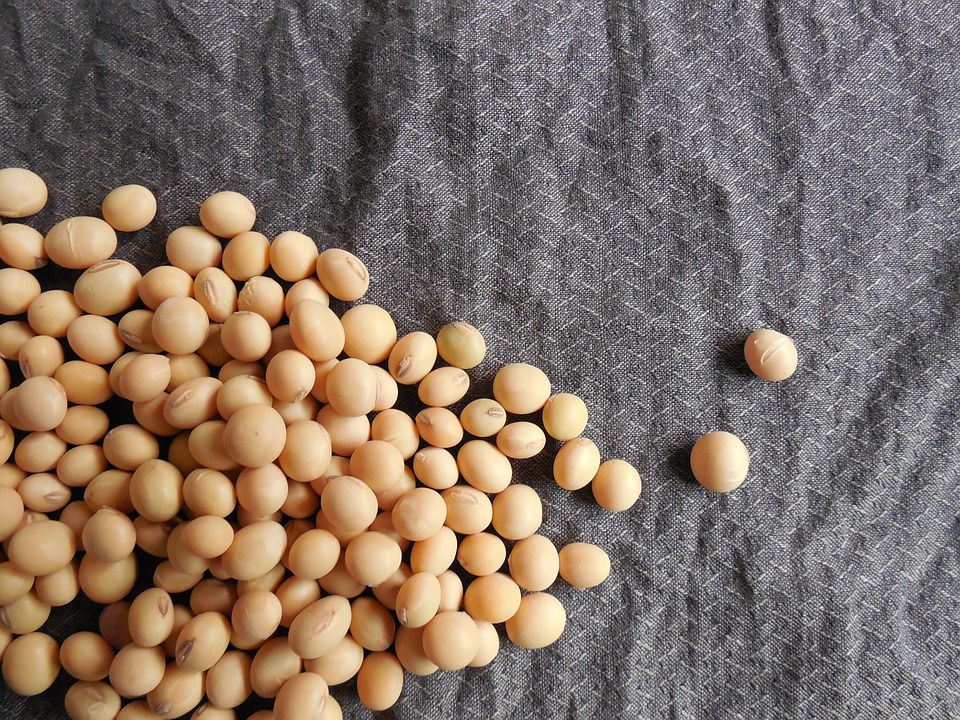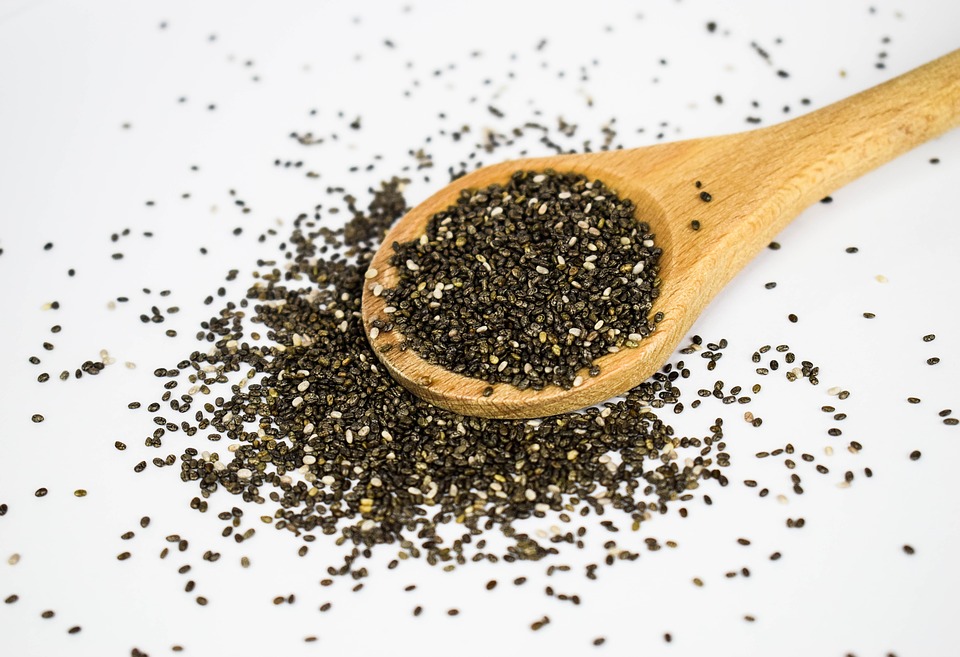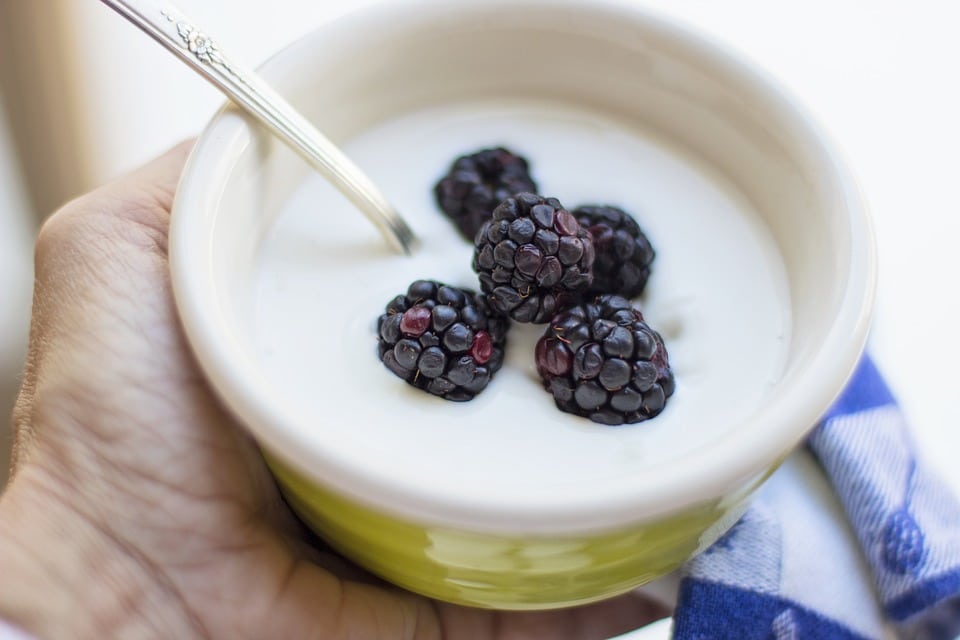Considered to be an essential dietary requirement, Omega-3 fatty acids are vital for the membrane that surrounds each cell. Healthy consumption of omega-3 fatty acids can help in the proper functioning of blood vessels, immune system, and lungs, making Omega-3 fatty acids crucial for a healthy diet.
The deficiency of omega-3s, on the other hand, can lead to severe conditions such as itchy rashes and rough skin. So, to make sure that your intake of omega-3 fatty acids is adequate, we decided to list out some healthy foods that you can add to your diet easily. For the ease of the reader, we have divided the list into two sections.
In the first, we’ll discuss the various vegetarian options of omega-3 fatty acids, whereas in the second we’ll talk about the non-vegetarian suggestions.
Before we discuss the various food items that you need to add to your diet, let us briefly discuss the various benefits corresponding with a high omega-3 diet.
Table of Contents
Watch: Foods Rich In Omega-3 Fatty Acids
Benefits Of An Omega-3 Rich Diet
Everyone is aware of the vital role that an omega-3 rich diet can have on their health, yet there is a loss in listing them out before we continue our search for omega-3 fatty acid-filled food items. From being beneficial for your brain to be able to promote your cardiovascular health, the incredible omega-3 fatty acids are well-known by people who are trying to live a healthy lifestyle.
But, what are these benefits that everyone is talking about? Here is a little dose of what you can expect from a diet rich in omega-3 fatty acids:
- As mentioned, omega-3s are quite good for your mental health. By stimulating the release of a certain chemical called serotonin, omega-3s help in the fight against depression and anxiety.
- Being good for your brain, these fatty acids help you in increasing your concentration capacity. Moreover, these are also used as a supplement for managing the symptoms of ADHD (attention deficit hyperactivity disorder) among young children.
- An omega-3-rich diet can effectively improve many metabolism-related issues. Some of its functions include the decrease of insulin resistance, managing blood pressure levels, and lowering the level of bad cholesterol.
- A particular type of omega-3 known as DHA is one of the most vital components of the retina. Thus, having an adequate supply of omega-3 might have some positive effects on your eye’s health and may reduce the risk of macular degeneration.
- High omega-3 levels are often linked with the reduced production of molecules such as eicosanoids and cytokines, both of which are known for increasing the inflammatory response of the body tissues. Thus, omega-3 fatty acids, by reducing the production of such molecules, can effectively act as an anti-inflammatory agent.
That being said, it is now time for us to move to our next segment where we have discussed various food items, both vegetarian and non-vegetarian, which can be effectively added to your diet for high omega-3 consumption.
Related Reading In Food Benefits
Vegetarian Food Items Rich In Omega-3 Fatty Acids
If you follow a strict vegetarian diet then you might just be in luck, for there are various alternatives that can aid you in fulfilling all your omega-3 related needs. Nuts, oils, and other legumes or dairy-related products, you name it and you can have it all. Here are a few of those names:
Plant Oils For Omega-3 Fatty Acids
Oil is one of the necessities for the preparation of food. Imagine what would happen if the oil that you used increased the nutritional quotient of your meal? Well, there are few plant oils, loaded with omega-3s, that are particularly used for such a purpose.
1. Soybean Oil
Apart from being loaded with omega-3 fatty acids, soybean oil is also considerably filled with an omega-6 fatty acid called linoleic acid. Its wide-availability and the low price has marked it as one of the most popular sources for these fatty acids, especially in the US.
Furthermore, due to its omega-6 rich nature, it is advised that you take note of your consumption and regulate it, for omega-6 fatty acids have been linked to inducing obesity.

2. Flaxseed Oil
The consumption of flaxseed oil can give your diet a healthy boost of omega-3, as it contains alpha-linolenic acid (a form of omega-3 fatty acid). Although, it may have a significant amount of omega-3s, but it is still not the richest source of these fatty acids.
Also Read: 9 Popular And Well-Known Benefits Of Adding Flax Seeds To Your Diet
3. Canola Oil
As a vegetable oil derived from a certain variety of rapeseed, which is also low in erucic acid, canola oil can be very efficient in providing you with an adequate supply of omega-3s.
Even after having a lower concentration of fatty acids when compared to flaxseed oil, canola oil is regarded as a healthier vegetable oil all because of its exceptional work for the promotion of one’s heart health.
4. Perilla Oil
Popularly used as a cooking oil in Korea and other Asian cuisines, perilla oil is the most versatile and flavorful source of omega-3 fatty acids. A single tablespoon or 14 grams of this oil contains about 9 grams of omega-3 fatty acid, thus proving its claim of being a rich source of omega-3 fatty acids.
Seeds And Nuts That Are Loaded With Omega-3 Fatty Acids
Everyone is aware of the promising quantity of dietary fibers and proteins that one can find in raw nuts and seeds, but it is the unsaturated fatty acids that make them an overall beneficial food item.
Here is the list of omega-3 fatty acid-rich nuts and seeds.
1. Chia Seeds
The quantity of dietary fibers in chia seeds is just exceptional. However, did you know that they are also one of the topmost providers of omega-3 fatty acid amongst all the other seeds?
Yes, you read that right. Approximately 75% of fats in chia seeds contain heart-healthy omega-3 alpha-linolenic acid, while 20% of it is omega-6, which makes it a healthy balance of polyunsaturated fatty acids.

2. Walnuts
Apart from being the only tree-nut with a significant amount of omega-3, walnuts are also considered to be one of its excellent sources. An about one-ounce serving of walnuts can help in providing you with 2.5 grams of omega-3 acids.
Thus, as a great source of healthy fats, these nuts might just be a great addition if you are looking for an omega-3 rich diet.
3. Hemp Seeds
Containing a good amount of omega-3s, hemp seeds are loaded with minerals such as magnesium, iron, and zinc. All of its nutritional content makes it a great addition to your diet, especially if you are looking for a diet that could help you stay fit.
Hemp seeds can be easily sprinkled over your yogurt and could add a bit of a crunch along with boosting your omega-3 consumption.
4. Flaxseeds
Well, after mentioning the flaxseed oil, the mention of flaxseed as a rich source for omega-3 fatty acid would be considered obvious, yet it is also important to point out this omega-3 content is what gives flaxseeds their heart-friendly properties.
It is good for maintaining your cholesterol level, it can effectively lower your blood pressure, and needless to say, its dietary fiber content is all that you need to shed some pounds. Thus, it is quite evident that flaxseeds can be an essential part of a healthy omega-3 rich diet.
Few Other Vegetarian Sources For Omega-3s
The list containing the rich sources of omega-3 fatty acids is yet not complete. Here are a few other items that’ll prove to be a healthy addition to your diet by giving it a significant omega-3 boost:
1. Yogurt
Though it may sound quite absurd, taking into account the recent technological advancements, many manufacturers have come up with a naturally occurring omega-3 rich yogurt. One of the main factors behind this yogurt is the production of milk that has a significant quantity of omega-3 fatty acids, which in turn is achieved by feeding the cows with omega-3 supplements.

Also Read: Yogurt/Curd For Acne And Pimples: 7 Amazing Skin & Hair Benefits Of Yogurt
2. Kidney Beans
Containing about 0.10 grams of alpha-linolenic acid per half a cup, kidney beans might not be the most excellent source of omega-3, but they can certainly be considered as the most feasible and adequate source of omega-3 fatty acids. As a popular ingredient in south-Asian cuisine, the consumption of kidney beans, especially in large quantities, helps it in achieving a favorable spot in everyone’s diet.
Non-Vegetarian Sources Of Omega-3 Fatty Acids
The non-vegetarian sources of omega-3 fatty acids are quite well known. These are the most common additions that one opts to have on an omega-3 rich diet.
Out of all the non-vegetarian option that you can think of, fish is usually the first one that comes to your mind. So, let’s take a look at the various fish-sources of omega-3 fatty acids.
Fish That Are Rich With Omega-3s
1. Salmon
This nutritionally dense fish is well-known for its high omega-3 content. Apart from being rich with these fatty acids, salmon also contains high-quality protein along with a large number of other minerals such as selenium, magnesium, and potassium, all of which are contributory factors for salmon’s heart-friendly nature.

2. Mackerel
Containing about 4 grams of omega-3 fatty acids per serving, the addition of mackerel can help in the boosting of your fatty acid intake. Requiring just a little bit of preparation, mackerel, just like salmon, is a well-known and favorable choice for an omega-3 rich diet.
3. Cod Liver Oil
Unlike many other vegetable oils, cod liver oil is extracted from the codfish, thus we placed it in this category. High in omega-3s, this oil is commonly consumed as a supplement rather than as a part of your meal. Furthermore, cod liver oil is also quite loaded with vitamins D and A, both of which are essential in providing with an antioxidant property and making it a great free-radical scavenger.
4. Herring
A raw Atlantic herring contains about 3 grams of omega-3 per fillet. And apart from that, a standard herring fillet can provide you with 100% of your daily requirement of vitamin D and selenium along with 50% of your daily requirement of vitamin B12.
Conclusion
Omega-3 fatty acids are important for a healthy diet. With its anti-inflammatory properties along with its effects on various metabolic functions, it is completely absurd to argue about its significance for a healthy lifestyle.



